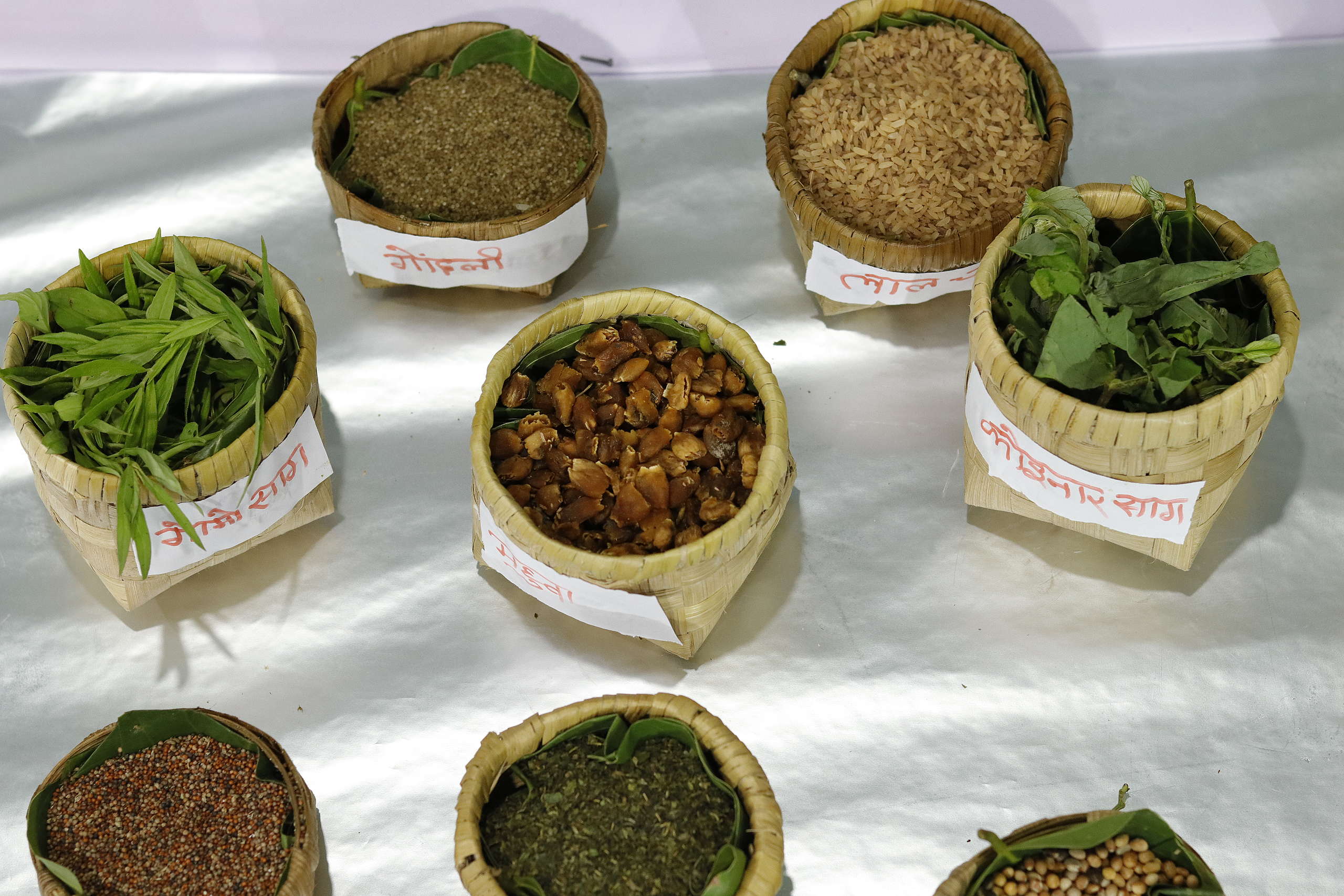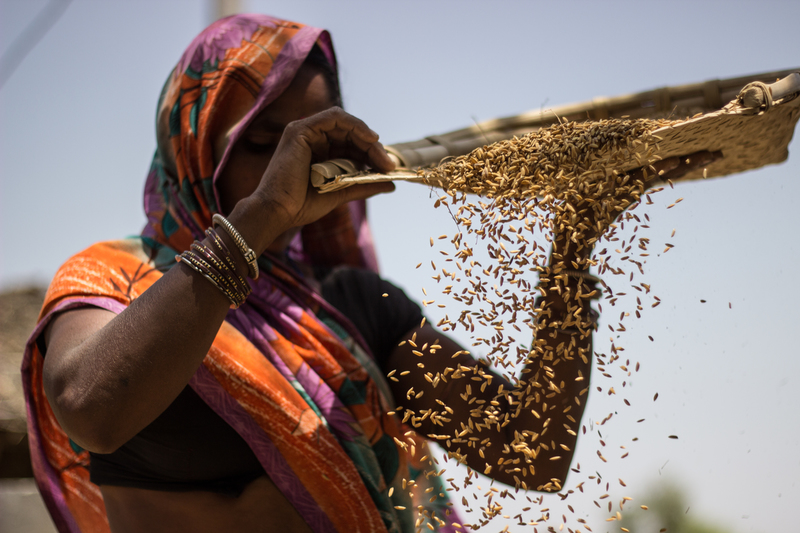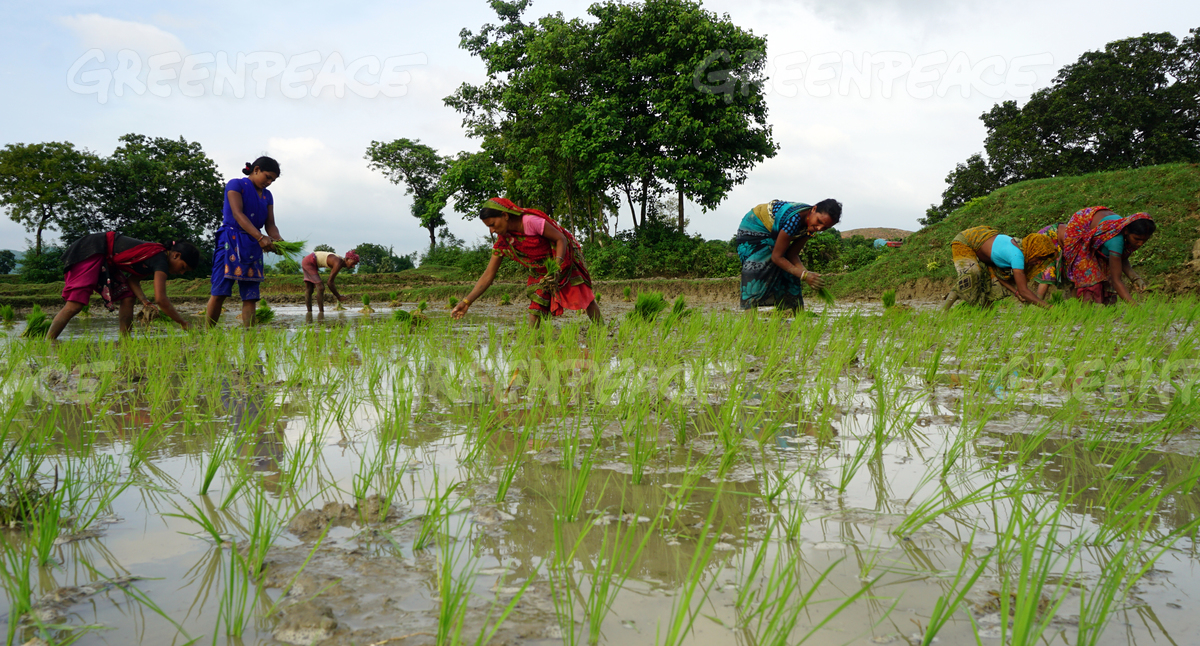Have you noticed how you feel different based on what you eat in a day? Whether it’s feeling happy after your favorite meal or lethargic after fast food, what we consume makes a big difference. A good meal impacts our well-being, our energy and strength levels, and how we tackle life. Sadly, a large population of Indians are facing a hunger and nutrition crisis.
India produces enough food to feed its poor for at least a year-and-a-half but over 190 million Indians go hungry every day. That’s one-sixth of India population who are permanently hungry and undernourished. Today, India is ranked 94th out of 107 countries on the Global Hunger Index.
The widespread practice of chemical-intensive farming is worsening the climate crisis. In the face of extreme weather and climate change, India’s agricultural system is not resilient enough to ensure safe and nutritious food for all. Greenpeace India has been working to build a stronger link between organic farmers and urban consumers, so everyone can easily access safe and nutritious food.

You can help make nutritious food accessible to all. Will you donate to India’s food security?
63.3% of rural Indians can’t afford to pay the cost of a nutritious diet. In Bihar, one of the states worst-affected by climate change, Greenpeace India has been working to build food and nutritional security along with climate resilience, through the spread of ecological agriculture.
The widespread practice of chemical-intensive farming is worsening the climate crisis. In the face of extreme weather and climate change, India’s agricultural system is not resilient enough to ensure safe and nutritious food for all.
“We are small farmers and are facing multiple challenges like fair pricing, availability of good quality native seeds and changing weather patterns and extreme weather events.”
– Banarasi Das, Farmer, Tari Dabil Village, Bihar
Over the last year, Bihar Jeevika and Greenpeace India worked with over 150 women farmers from vulnerable communities to establish organic kitchen gardens (OKGs) with over 20 crops. These organic kitchen gardens are a sustainable and self-reliant food system that has increased their income and improved their health.
“Even though we could not sell our produce, our gardens ensured we could have healthy food. But people across the village were falling ill, so we started selling our garden produce in the village. This provided healthy food to families in need and secured minimal income for some families to purchase medicines for the treatment of their loved ones.”
– Seema Kumari, Mohanpur, Bihar

To our great joy, the success of the organic kitchen garden project has inspired the government to pilot it with over 5000 families across the Jamui district. Now, we’ve been working with local communities and leaders to conduct workshops on sustainable farming and organic kitchen gardening.
Citizens are being fed several false solutions to end India’s nutrition crisis but we know that traditional and ecological practices like organic kitchen gardening work. This is how we create a safe, sustainable and climate-resilient food system.
If you haven’t joined the tribe yet, this is your chance.
Donate now to make India’s food system accessible and resilient, through sustainable farming.




